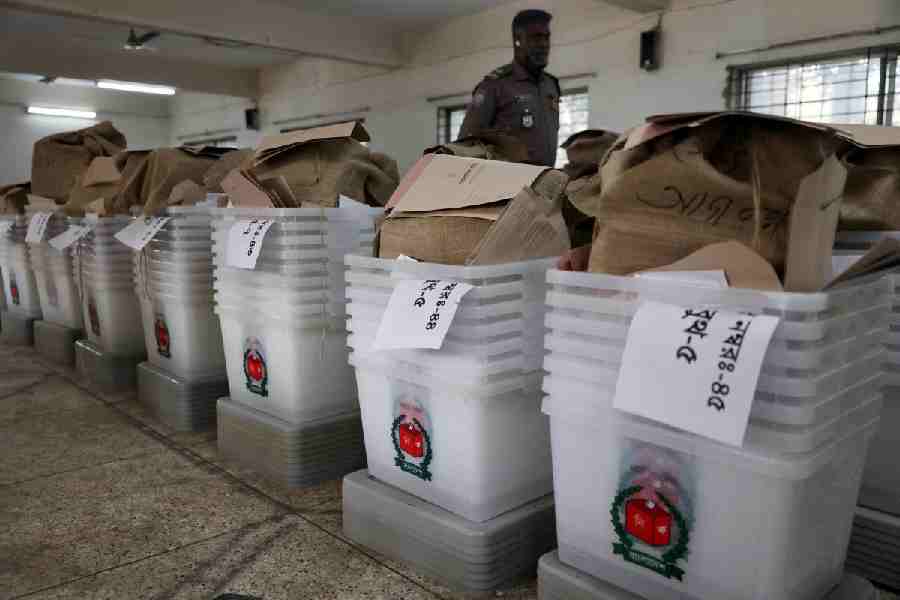|
|
| Lonely path |
By a strange coincidence, James Joyce in his famous novel, A Portrait of the Artist as a Young Man, wrote a few lines that are echoed in Rabindranath Tagore’s poem, “Ekla chalo” — “Tread the lonely path” —written at about the same time. Joyce’s lines run as follows:
“‘Look here, Cranly’, he said. ‘You have asked me what I would do and what I would not do. I will tell you what I will do and what I will not do. I will not serve that in which I no longer believe, whether it call itself my home, my fatherland, or my church: and I will try to express myself in some mode of life or art as freely as I can and as wholly as I can, using for my defence the only arms I allow myself to use — silence, exile, and cunning.’
Cranly seized his arm and steered him round so as to lead him back towards Leeson Park. He laughed almost slyly and pressed Stephen’s arm with an elder’s affection.
‘Cunning indeed!’, he said. ‘Is it you? You poor poet, you!’
‘And you made me confess to you,’ Stephen said, thrilled by his touch, ‘as I have confessed to you so many other things, have I not?’
‘Yes, my child,’ Cranly said, still gaily.
‘You made me confess the fears that I have. But I will tell you also what I do not fear. I do not fear to be alone or to be spurned for another or to leave whatever I have to leave. And I am not afraid to make a mistake, even a great mistake, a lifelong mistake, and perhaps as long as eternity too.’”
First attempt
I was rummaging through old notebooks and scraps of paper I had preserved when I came across my first attempt to translate Urdu poetry into English. It was with the help of Manzur Qadir, my closest friend during my seven years in Lahore (1940-47). We happened to be travelling in the same Polish ocean liner, Batory, which plied from Southampton to Karachi and Bombay. Most of the passengers were either Pakistanis or Indians. Manzur and I spent our days on the deck. He took out his favourite verses from the Deewan-e-Muhammad Iqbal by Allama Iqbal and explained what they meant. I chose one to try my hand at translation and showed it to Manzur to check for accuracy.
To the Creator did Beauty
one day complain
Why made Ye of stuff that
doth wane?
“The world is like a Hall of
Mirrors,” answered He.
A tale told to pass the
long night of eternity
Since of changeable hues
we are made.
It is essence of beauty that it
must fade
The moon overheard, she was not far
It spread in the skies to the
Morning Star
The Star told the Dawn, the Dawn
to the dew extended
The secret of heavens thus to the
earth descended
Tears filled the eyes of the flower on
hearing what he had said
The bud’s little heart burst with
grief and bled
Grief fled the garden in loud lament
Youth that had come to sport, in
sorrow went.
Growth rate
We have controlled population
growth and checked the price rise
Which are now touching the lower
skies.
Amit Shah is innocent and his very
look shows
That he cannot kill a couple of flies,
The Parliament functions normally
And away from all business shies,
Ms Mamata Banerjee is a great
railway minister
Who from the Maidan in Calcutta
cries
“You the people of Delhi, Mumbai
and Chennai
Very safe in my hands your lives lie
But let me first, with some help from
Naxalites
To the chief ministership of Bengal
rise.”
Bhishm Pitamah of the country,
M. Karunanidhi
Will see to it before he dies
That for seven generations in his
family
Every child a minister’s chair
occupies
And true to the maxim that there is
lull before the storm
Rather dormant Behenji Mayawati
lies.
So I can say on oath
That in political morality and
service to the people
Our netas have touched the point of
highest growth.
(Contributed by Kuldip Salil, Delhi)












